Abstract
As many as 80% of the individuals with severe or profound mental retardation exhibit feeding problems. Although behavioral interventions have been used to treat these problems, no assessment procedure for determining a functional relationship between a person's acceptance of food and the type and texture of that food has been reported. The purpose of this study was to test a behavioral assessment procedure for a feeding problem of limited intake. Five individuals with severe or profound mental retardation were fed 10 to 12 types of foods with one or more textures. Behavioral categories of acceptance, rejection, expulsion, and other negative behavior were recorded. Results indicated that each subject fit into one of four categories of feeding problems: (a) total refusal, (b) type selectivity, (c) texture selectivity, or (d) type and texture selectivity. Thus, although all 5 subjects exhibited limited intake, the food characteristics correlated with the problem were different for each individual. Results suggest that treatments for limited intake may be based on assessments that show the association of food type or texture to a person's rejection or expulsion of food.
Full text
PDF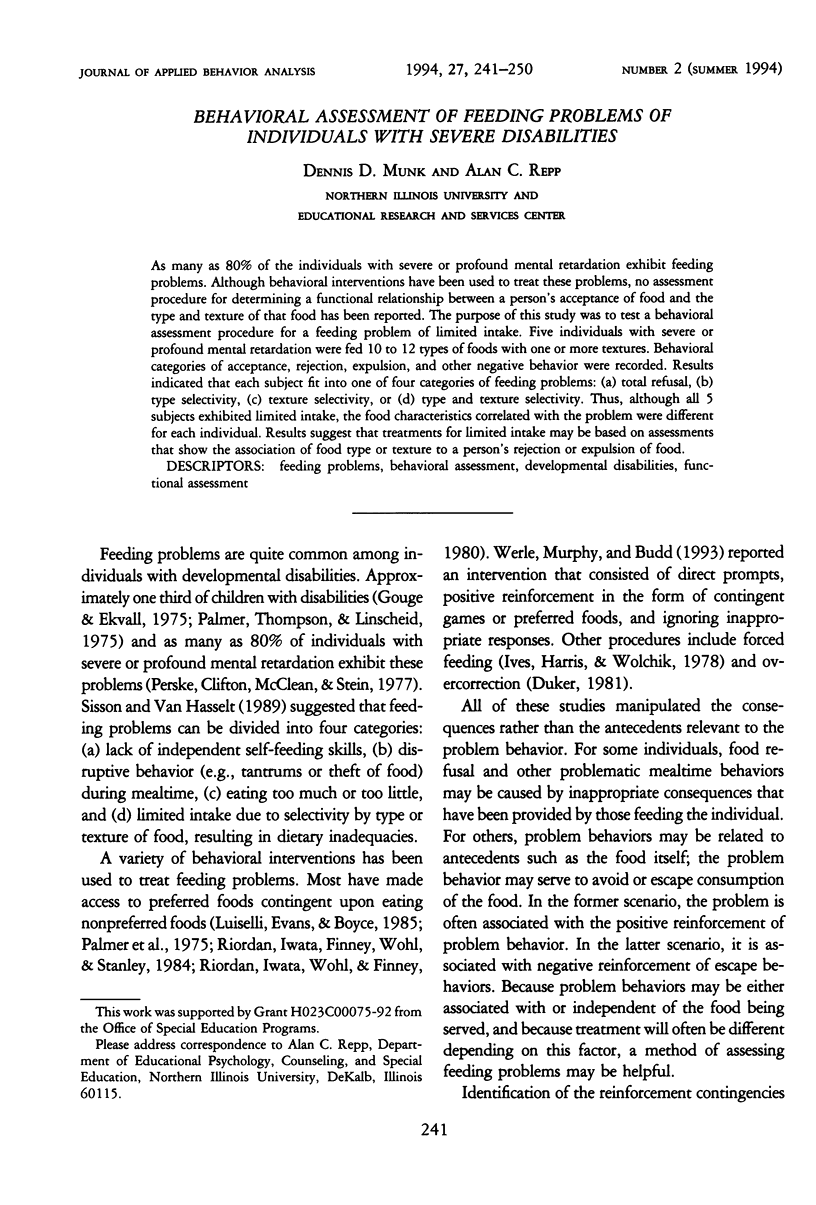
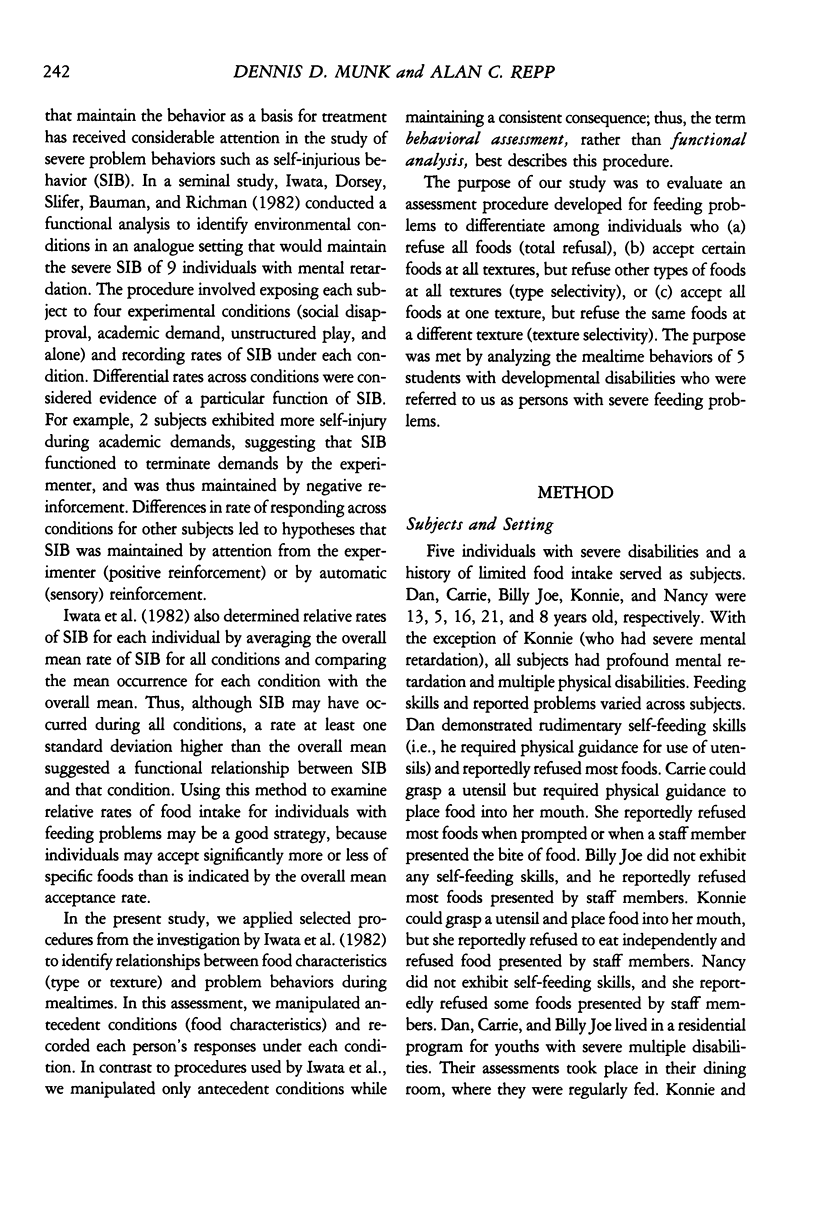
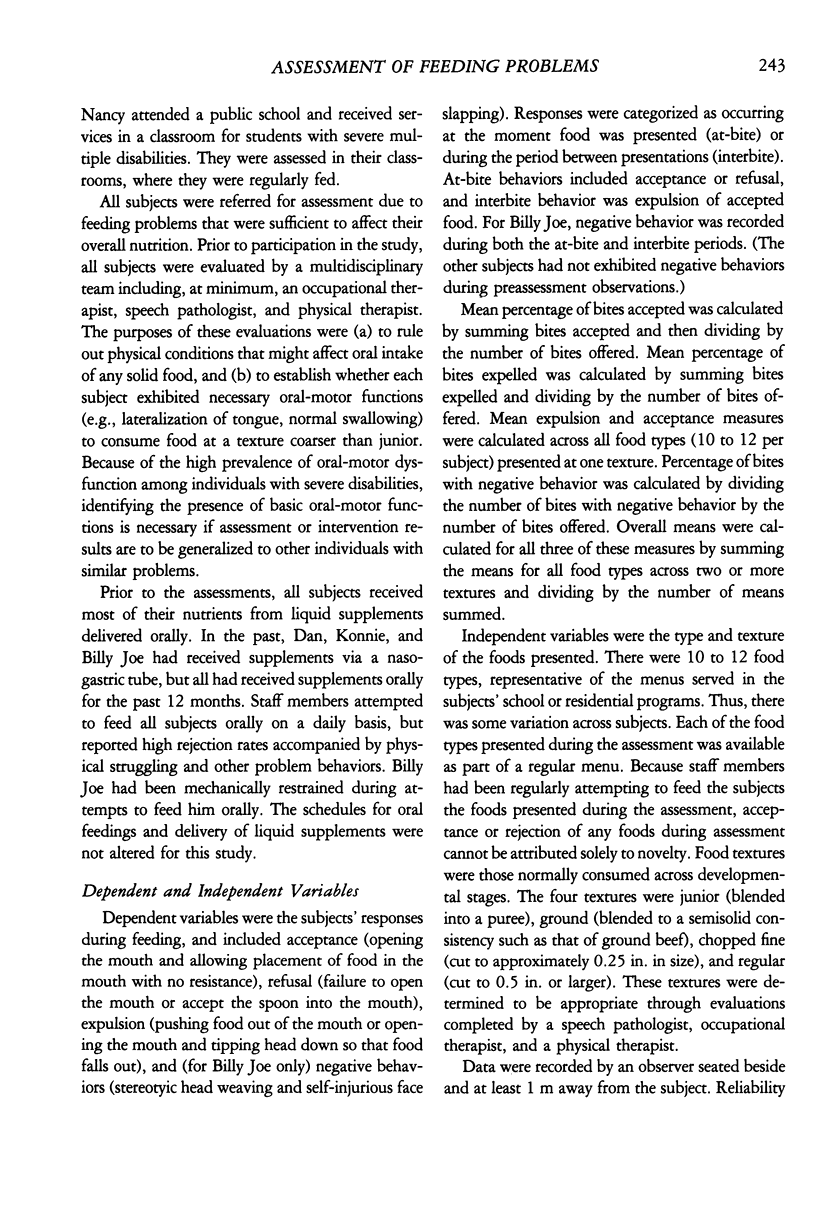
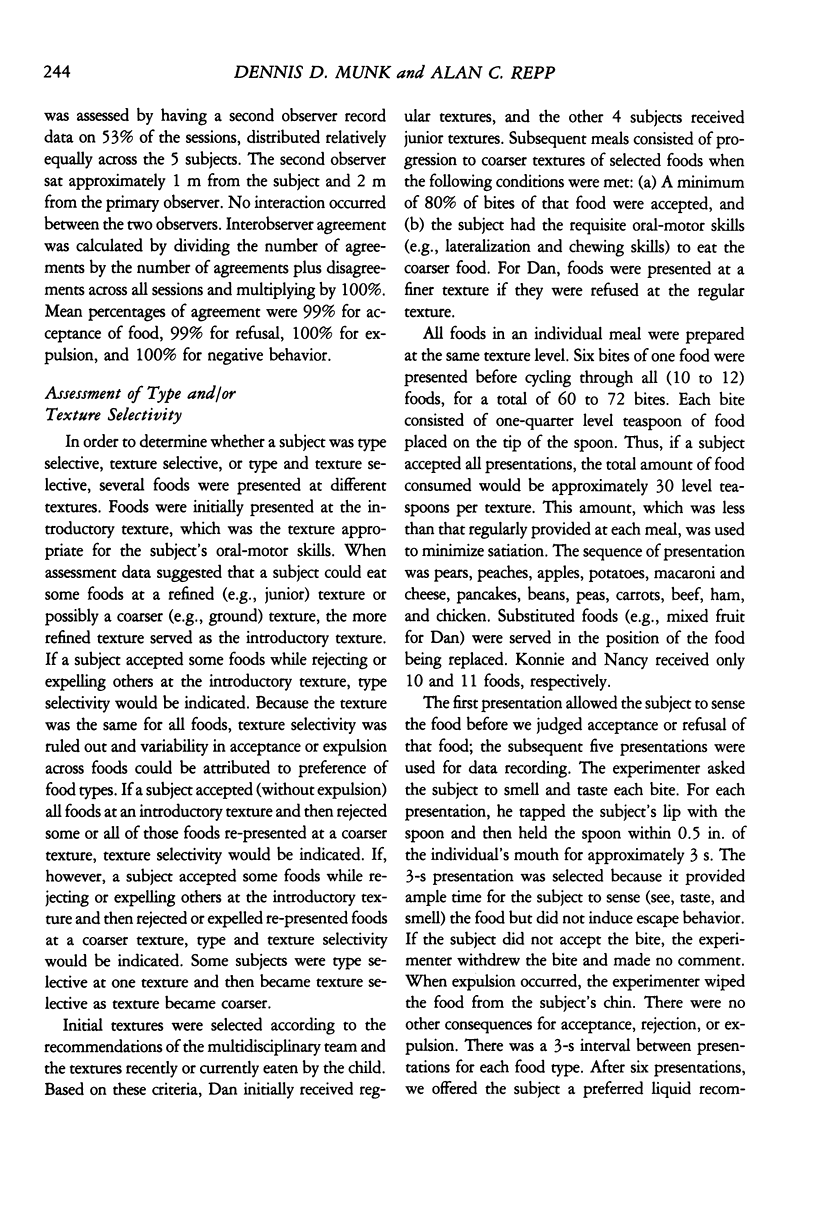
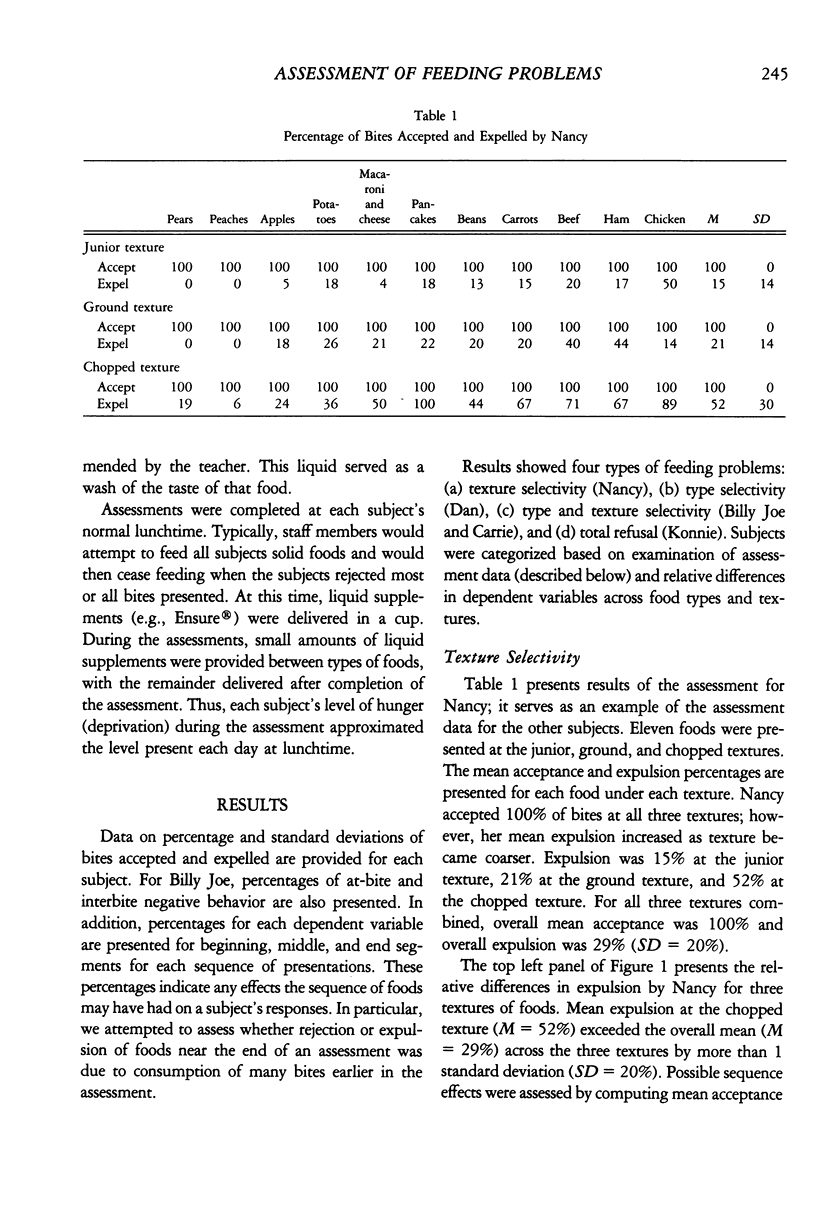
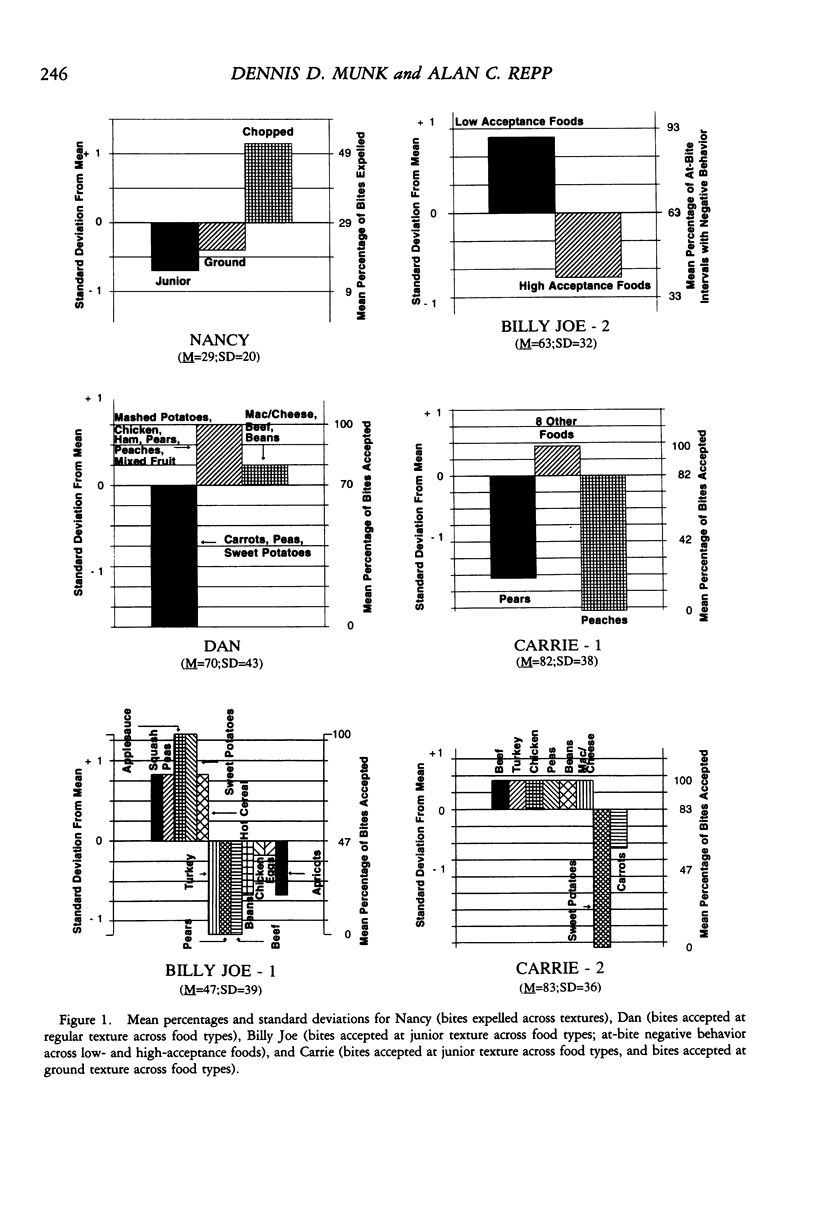
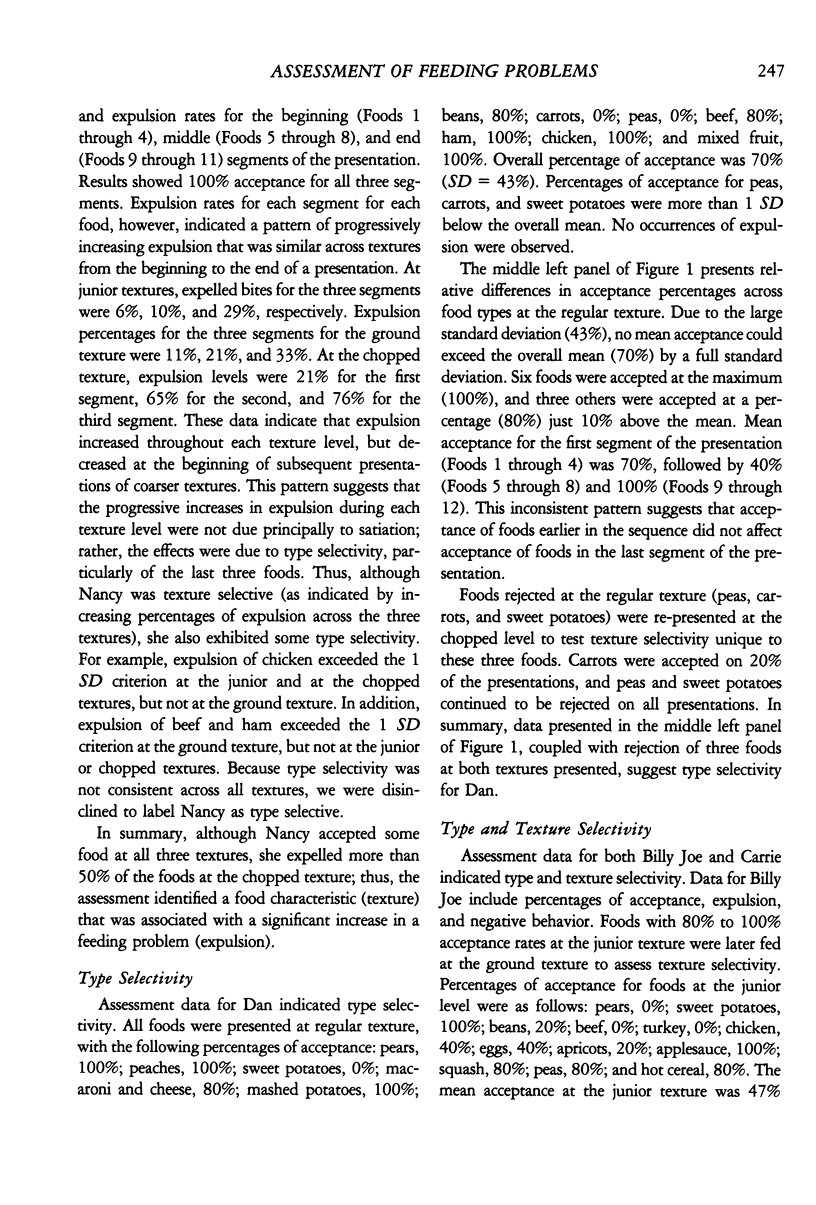
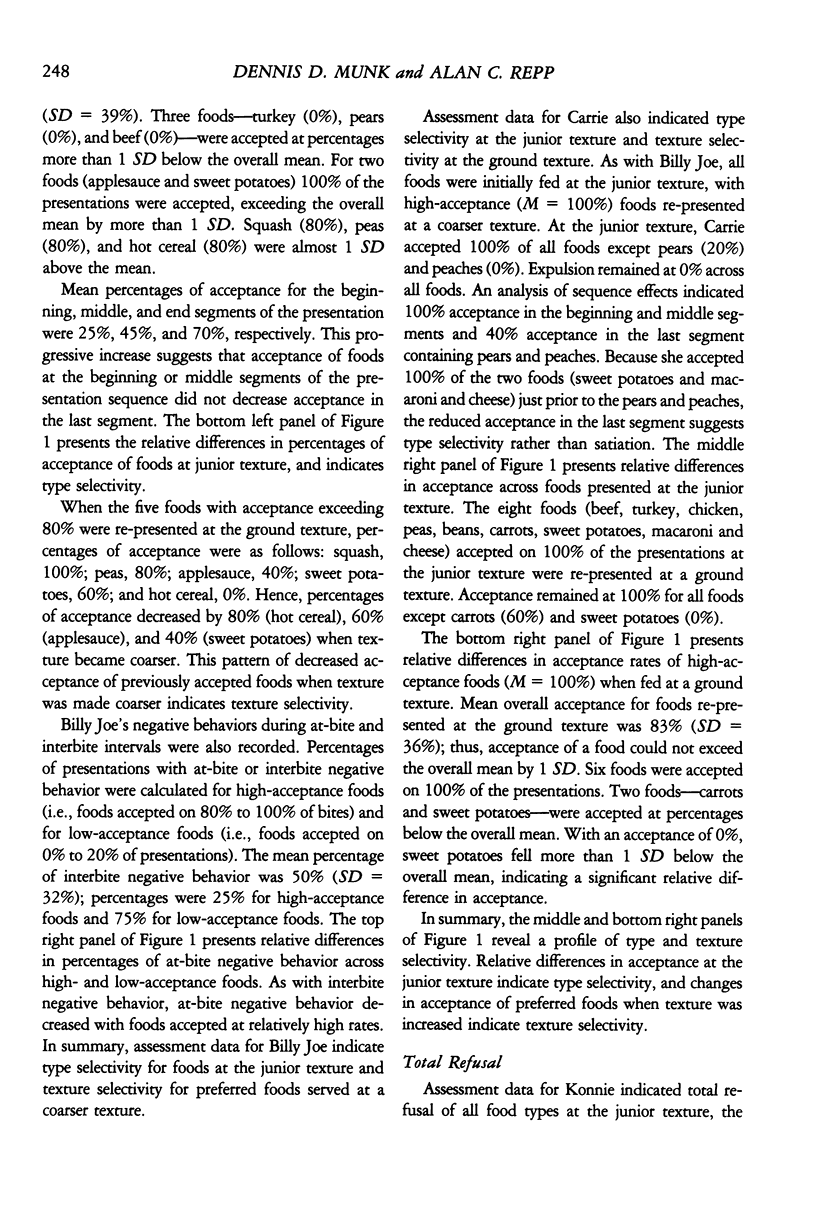
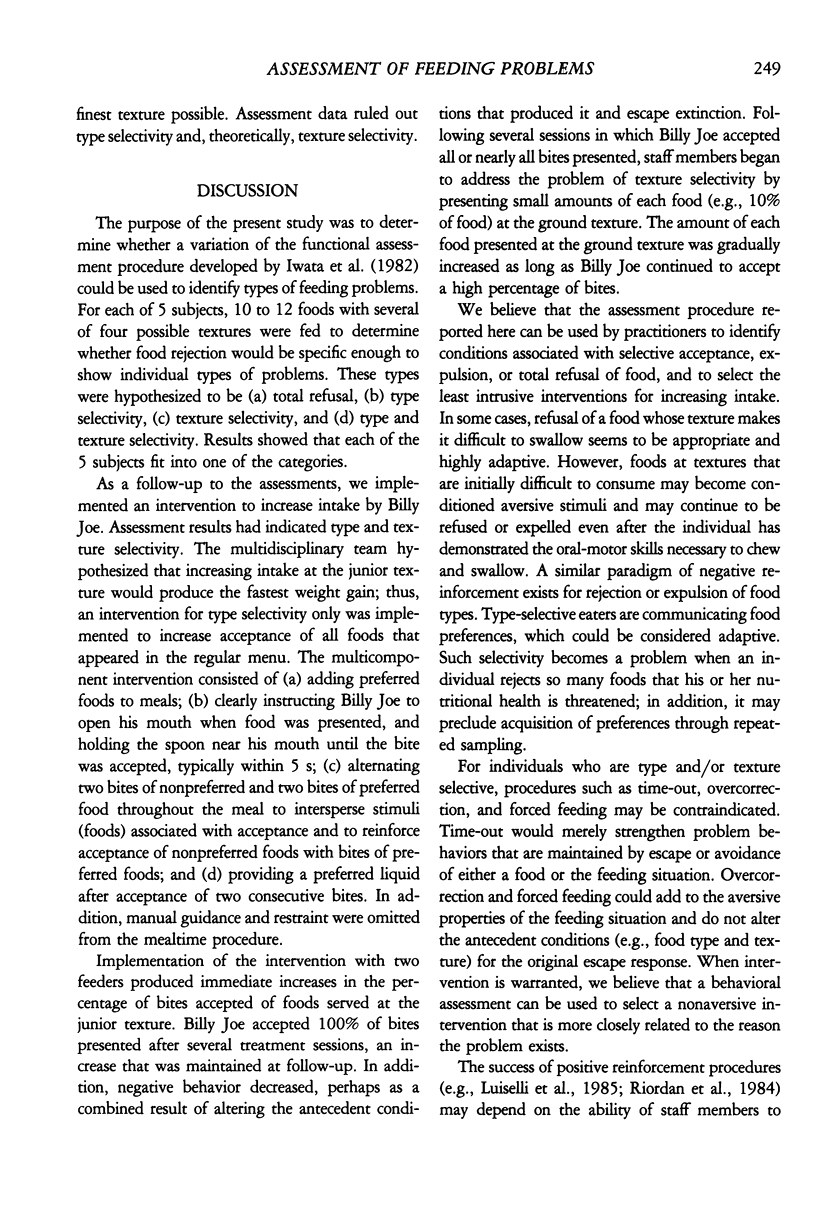
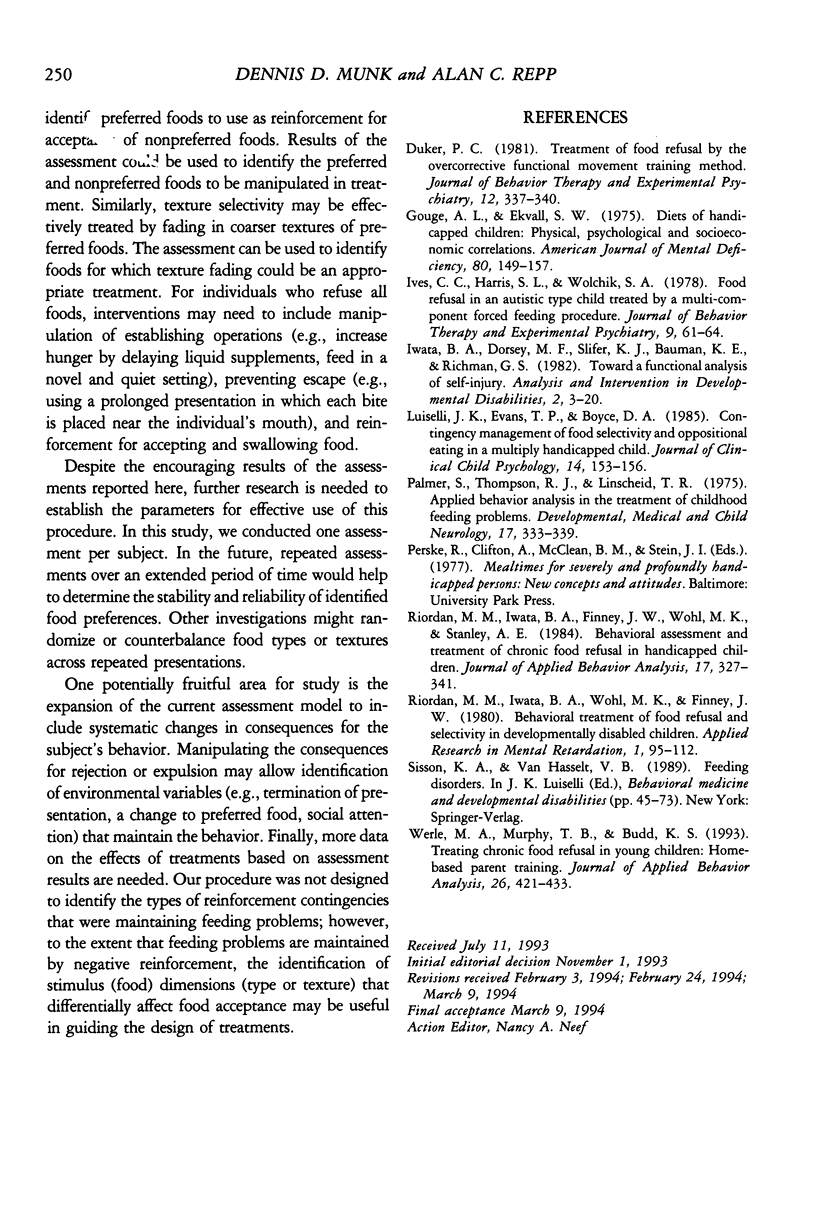
Selected References
These references are in PubMed. This may not be the complete list of references from this article.
- Duker P. C. Treatment of food refusal by the overcorrective functional movement training method. J Behav Ther Exp Psychiatry. 1981 Dec;12(4):337–340. doi: 10.1016/0005-7916(81)90075-6. [DOI] [PubMed] [Google Scholar]
- Gouge A. L., Ekvall S. W. Diets of handicapped children: physical, psychological, and socioeconomic correlations. Am J Ment Defic. 1975 Sep;80(2):149–157. [PubMed] [Google Scholar]
- Palmer S., Thompson R. J., Jr, Linscheid T. R. Applied behavior analysis in the treatment of childhood feeding problems. Dev Med Child Neurol. 1975 Jun;17(3):333–339. doi: 10.1111/j.1469-8749.1975.tb04671.x. [DOI] [PubMed] [Google Scholar]
- Riordan M. M., Iwata B. A., Finney J. W., Wohl M. K., Stanley A. E. Behavioral assessment and treatment of chronic food refusal in handicapped children. J Appl Behav Anal. 1984 Fall;17(3):327–341. doi: 10.1901/jaba.1984.17-327. [DOI] [PMC free article] [PubMed] [Google Scholar]
- Riordan M. M., Iwata B. A., Wohl M. K., Finney J. W. Behavioral treatment of food refusal and selectivity in developmentally disabled children. Appl Res Ment Retard. 1980;1(1-2):95–112. doi: 10.1016/0270-3092(80)90019-3. [DOI] [PubMed] [Google Scholar]
- Werle M. A., Murphy T. B., Budd K. S. Treating chronic food refusal in young children: home-based parent training. J Appl Behav Anal. 1993 Winter;26(4):421–433. doi: 10.1901/jaba.1993.26-421. [DOI] [PMC free article] [PubMed] [Google Scholar]


